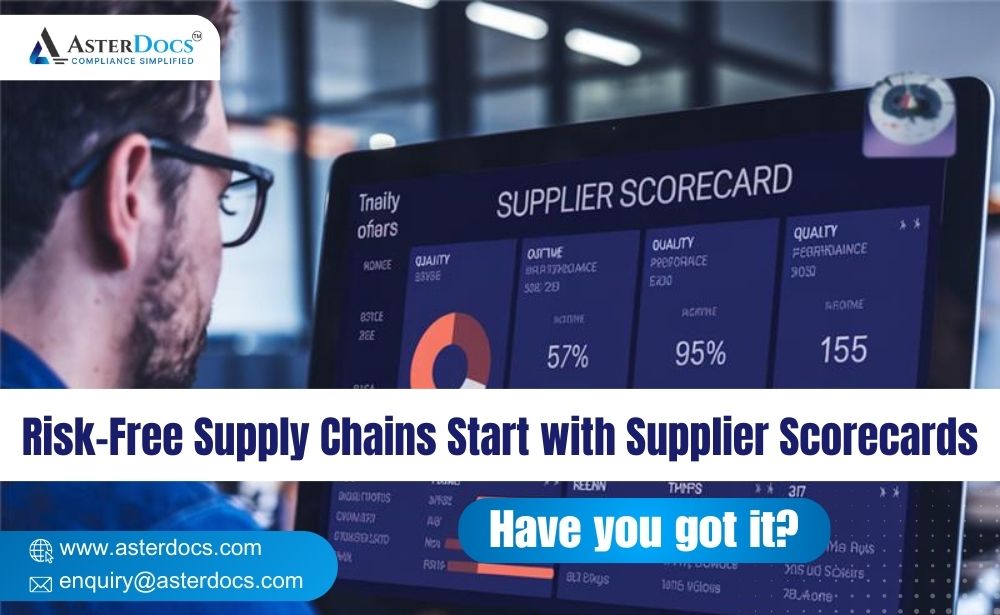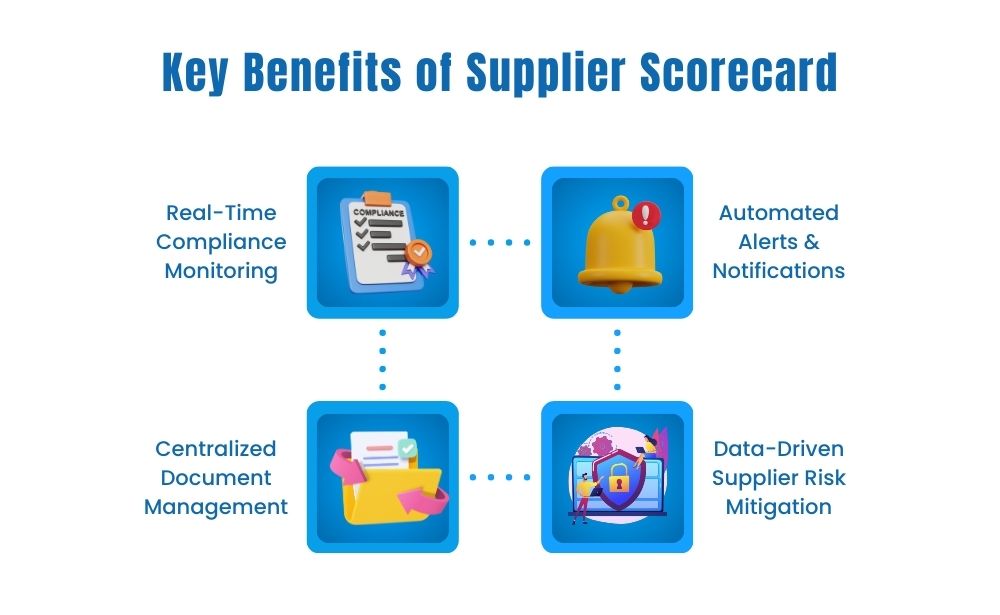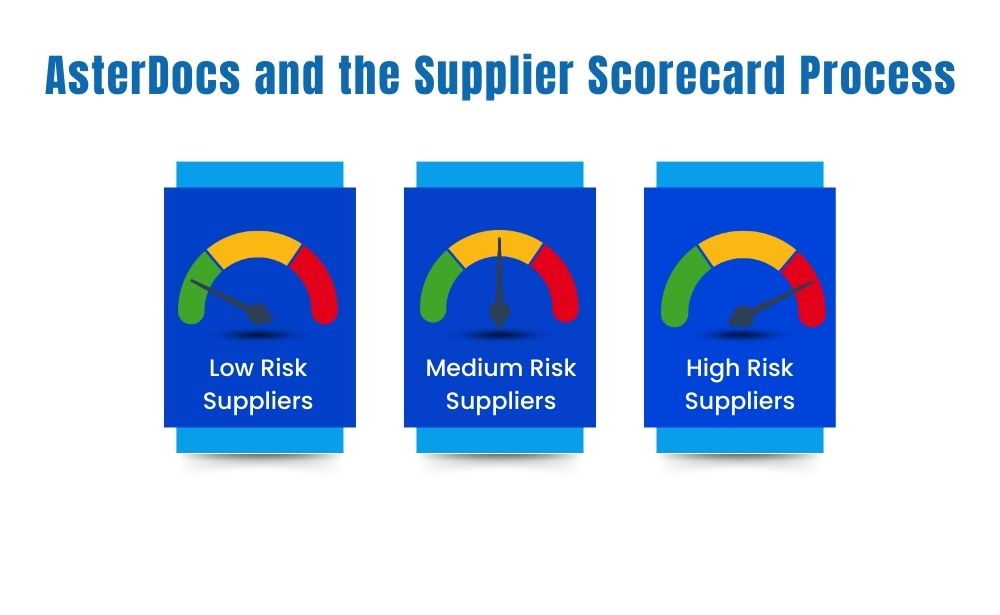In industries like pharmaceuticals, food production, and nutraceuticals, compliance isn’t just a box to tick—it’s essential for safety, legal adherence, and the overall success of supply chains. Businesses face stringent regulations that mandate proper documentation, rigorous inspections, and continuous monitoring of supplier performance. Managing all of these requirements manually can be overwhelming and error-prone. This is where supplier scorecard software becomes invaluable, offering a comprehensive solution to ensure compliance while maintaining supplier performance.
Why Compliance Is Non-Negotiable in Regulated Industries
Regulated industries face unique challenges when it comes to maintaining compliance. From certifications like COAs (Certificates of Analysis) and MSDS (Material Safety Data Sheets) to country of origin certificates, the amount of documentation required is immense. Failing to meet these requirements can result in legal ramifications, financial penalties, and disrupted supply chains. In extreme cases, non-compliance could damage a company’s reputation or result in the loss of valuable partnerships.
For example, the food and pharmaceutical industries need to ensure that products meet stringent safety standards before reaching consumers. Supplier scorecards provide businesses with a streamlined way to monitor compliance, ensuring that suppliers are meeting these legal standards and reducing the risk of costly mistakes.
What Is Supplier Scorecard Software?
Supplier scorecard software serves as a tool to evaluate suppliers based on pre-established metrics, such as quality, compliance, delivery performance, and pricing. It enables businesses to track each supplier’s compliance with critical certifications like COAs and MSDS. By using a set of predetermined questionnaires to evaluate suppliers, businesses can assess risk more effectively.
Once the evaluation is completed, suppliers are categorized into low, medium, or high risk based on their compliance with the required certifications. This segmentation helps businesses focus on high-risk suppliers that may need closer monitoring and additional measures to meet compliance standards.
Key Benefits of Supplier Scorecard Software in Compliance
- Real-Time Monitoring of Compliance Metrics
Supplier scorecard software allows businesses to monitor compliance metrics in real-time, providing up-to-date information on whether suppliers meet regulatory requirements. For instance, the software tracks the expiration of certifications like COAs and MSDS and sends out alerts when renewal is due, reducing the risk of non-compliance. - Centralized Document Management
One of the most important benefits of the supplier scorecard tool is its ability to centralize all compliance-related documentation. Instead of tracking multiple spreadsheets and email chains, the software stores all relevant documents in one easily accessible platform. This is particularly beneficial during audits, where businesses can quickly pull up required documentation. - Automated Alerts and Notifications
Automated reminders ensure that suppliers renew expiring certifications on time, whether it’s COAs, MSDS, or other compliance-related documentation. AsterDocs, for instance, uses built-in alert systems to notify both suppliers and businesses of impending document expiration, ensuring continuous compliance without manual follow-up. - Data-Driven Supplier Risk Mitigation
By automatically scoring suppliers based on compliance and performance metrics, scorecard software helps identify potential risks before they escalate. High-risk suppliers can be flagged for additional review, while low-risk suppliers can be given more autonomy in their operations. This data-driven approach enables businesses to allocate resources effectively and avoid unnecessary risks.
AsterDocs and the Supplier Scorecard Process
AsterDocs, a leader in supplier compliance solutions, leverages a supplier scorecard system that evaluates suppliers using a set of predetermined questionnaires. These questionnaires assess various aspects, including compliance with regulatory documentation like COAs and MSDS, delivery performance, and product quality. Once the evaluation is complete, suppliers are segregated into three categories:
- Low Risk Suppliers: Suppliers consistently meet or exceed compliance standards with proper documentation and high-quality performance.
- Medium Risk Suppliers: Suppliers that have minor compliance issues or occasional lapses in documentation. These suppliers require periodic reviews but generally pose no immediate threat.
- High Risk Suppliers: Suppliers who frequently fail to meet compliance standards or lack crucial certifications, posing significant risks to the supply chain.
By segmenting suppliers into these categories, AsterDocs helps businesses identify where they should focus their compliance efforts. For high-risk suppliers, additional measures may be required, such as conducting site visits or increasing the frequency of audits.
Enhancing Supplier Relationships with Scorecards
Supplier scorecard is not just about penalizing underperforming suppliers—it’s about creating transparency and building stronger partnerships. When suppliers are aware of how they are being evaluated, they are more likely to meet performance standards. This creates a collaborative environment where both parties can work toward continuous improvement.
Use Cases for Supplier Scorecard Software
- Pharmaceuticals
In the pharmaceutical industry, managing supplier compliance is critical due to the complexity of regulatory requirements. Supplier scorecard tool tracks compliance with Good Manufacturing Practice (GMP) regulations and other industry-specific standards, reducing the risk of supply chain disruptions. - Food and Beverage Industry
For food manufacturers, supplier compliance with safety standards is non-negotiable. Supplier scorecards help monitor adherence to COAs, ensuring that raw materials meet safety and quality standards. This is particularly important for businesses that need to meet global food safety certifications like ISO 22000.
Conclusion
Supplier scorecard software is a critical tool for maintaining compliance in regulated industries. It offers real-time monitoring, centralized document management, and automated alerts, all of which contribute to better risk mitigation and more transparent supplier relationships. Platforms like AsterDocs take this one step further by segmenting suppliers into risk categories, enabling businesses to focus their compliance efforts where they matter most.
For businesses operating in highly regulated sectors, leveraging supplier scorecards isn’t just a best practice—it’s a necessity for ensuring the integrity and success of the supply chain.















